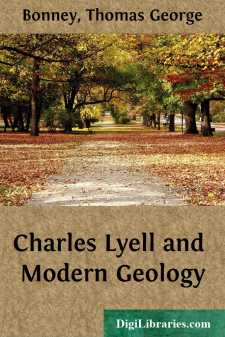Categories
- Antiques & Collectibles 13
- Architecture 36
- Art 48
- Bibles 22
- Biography & Autobiography 813
- Body, Mind & Spirit 142
- Business & Economics 28
- Children's Books 17
- Children's Fiction 14
- Computers 4
- Cooking 94
- Crafts & Hobbies 4
- Drama 346
- Education 46
- Family & Relationships 57
- Fiction 11829
- Games 19
- Gardening 17
- Health & Fitness 34
- History 1377
- House & Home 1
- Humor 147
- Juvenile Fiction 1873
- Juvenile Nonfiction 202
- Language Arts & Disciplines 88
- Law 16
- Literary Collections 686
- Literary Criticism 179
- Mathematics 13
- Medical 41
- Music 40
- Nature 179
- Non-Classifiable 1768
- Performing Arts 7
- Periodicals 1453
- Philosophy 64
- Photography 2
- Poetry 896
- Political Science 203
- Psychology 42
- Reference 154
- Religion 513
- Science 126
- Self-Help 84
- Social Science 81
- Sports & Recreation 34
- Study Aids 3
- Technology & Engineering 59
- Transportation 23
- Travel 463
- True Crime 29
Charles Lyell and Modern Geology
Description:
Excerpt
CHAPTER I.
Caledonia, stern and wild, may be called "meet nurse" of geologists as well as of poets. Among the most remarkable of the former is Charles Lyell, who was born in Forfarshire on November 14th, 1797, at Kinnordy, the family mansion. His father, who also bore the name of Charles, was both a lover of natural history and a man of high culture. He took an interest at one time in entomology, but abandoned this for botany, devoting himself more especially to the study of the cryptogams. Of these he discovered several new species, besides some other plants previously unknown in the British flora, and he contributed the article on Lichens to Smith's "English Botany." More than one species was named after him, as well as a genus of mosses, Lyellia, which is chiefly found in the Himalayas. Later in his life, science, on the whole, was supplanted by literature, and he became engrossed in the study of the works of Dante, of some of whose poems he published translations and notes. Thus the geologist and author is an instance of "hereditary genius."
Charles was the eldest of a family of tenâthree sons and seven daughters, all of whom grew up. Their mother was English, the daughter of Thomas Smith, of Maker Hall in Yorkshire, "a woman of strong sense and tender anxiety for her children's welfare." "The front of heaven," as Lyell has written in a fragment of autobiography, was not "full of fiery shapes at his nativity," but the season was so exceptionally warm that his mother's bedroom-window was kept open all the nightâan appropriate birth-omen for the geologist, who had a firmer faith than some of his successors in the value of work in the open air. He has put on record only two characteristics of his infancy, and as these can hardly be personal recollections, we may assume them to have been sufficiently marked to impress others. One if not both was wholly physical. He was very late in cutting his teeth, not a single one having appeared in the first twelvemonth, and the hardness of his infant gums caused an old wife to prognosticate that he would be edentulous. Also, his lungs were so vigorous and so habitually exercised that he was pronounced "the loudest and most indefatigable squaller of all the brats of Angus."
The geologist who so emphatically affirmed the necessity of travel, early became an unconscious practiser of his own precept. When he was three months old his parents went from Kinnordy to Inveraray, whence they journeyed to the south of England, as far as Ilfracombe. From this place they removed to Weymouth and thence to Southampton. More than a year must have been thus spent, for their second childâalso a sonâwas born at the last-named town. Mr. Lyell, the father, now took a lease of Bartley Lodge, on the New Forestâsome half-dozen miles west of Southampton, where the family lived for twenty-eight years. His mother and sisters also left Kinnordy, and rented a house in Southampton. Their frequent excursions to Bartley Lodge, as Lyell observes, were always welcome to the children, for they never came empty-handed.
Kinnordy, however, was visited from time to time in the summer, and on one of these occasions, when Charles was in his fifth year, some of the family had a narrow escape....


